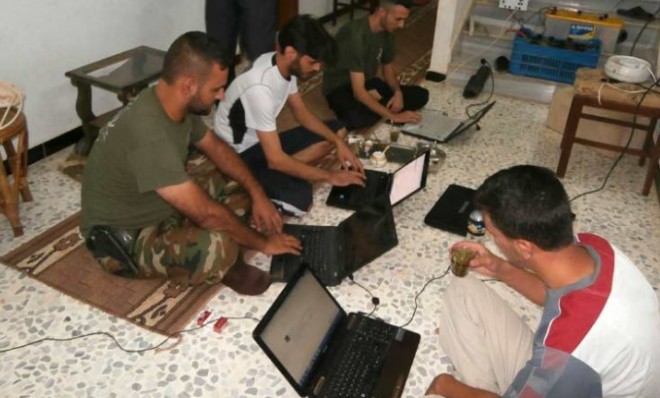Why Bashar al-Assad unplugged the internet in Syria
Early Thursday morning, the war-torn Mideast nation disappeared from the internet. What happened?


A free daily email with the biggest news stories of the day – and the best features from TheWeek.com
You are now subscribed
Your newsletter sign-up was successful
At 5:26 a.m. New York time (12:26 p.m. in Damascus), Syria's internet went dark. According to two U.S. internet monitoring companies, Renesys and Akamai Technologies, Syria is now completely cut off from the e-world, with all internet connections down along with at least some phone service. "A smaller outage could be chalked up to an errant mortar shell," but the entire country? says Sam Biddle at Gizmodo. "Only the Syrian regime has the power to create that kind of lockout at will."
"Shutting down web and phone service is a tactic increasingly pursued by countries to limit the spread of information both within the country and to the outside world," says Shara Tibken at CNET News. Without communication, the anti-government rebels are cut off from one another, limiting their ability to fight. Both Egypt and Libya pulled the internet plug early on in their uprisings, but President Bashar al-Assad hadn't until now. "The move today could signal even tougher times ahead for Syria." In fact, given the buildup of troops and mortars on roads around the capital, it "seems the regime is preparing for major battle on Damascus," a senior European Union officials tells Reuters. "In a military zone," Arab affairs analyst Taufiq Rahim tells CNN, "the government can still communicate but opposition forces will have a very hard time."
Indeed, "shutting down nationwide internet service is a remarkable step, one with significant implications for Syria's economy," says Max Fisher at The Washington Post. Already, some airlines are canceling flights to Damascus. But maybe the real question is "why Syria didn’t do this sooner."
The Week
Escape your echo chamber. Get the facts behind the news, plus analysis from multiple perspectives.

Sign up for The Week's Free Newsletters
From our morning news briefing to a weekly Good News Newsletter, get the best of The Week delivered directly to your inbox.
From our morning news briefing to a weekly Good News Newsletter, get the best of The Week delivered directly to your inbox.
The country has already taken far more severe action, including reports of targeting children.... Its uprising long ago exceeded Egypt's and Libya's in severity by the time those countries had instituted their own blackouts. One possible explanation is that Syria has been far more assertive online, using it as a tool for tracking dissidents and rebels, and sometimes even tricking them into handing the government personal data using phishing scams.... Assad's regime may have seen opportunity as well as risk on the web, where perhaps the Egyptian and Libyan authorities saw primarily a tool of the uprising.... Perhaps the most important question is whether this reported shutdown represents a setback for the rebels and activists who have used the web to coordinate, a sign of the regime's desperation that it would take this measure, or maybe even both.
A free daily email with the biggest news stories of the day – and the best features from TheWeek.com
Peter has worked as a news and culture writer and editor at The Week since the site's launch in 2008. He covers politics, world affairs, religion and cultural currents. His journalism career began as a copy editor at a financial newswire and has included editorial positions at The New York Times Magazine, Facts on File, and Oregon State University.
-
 Britain’s ex-Prince Andrew arrested over Epstein ties
Britain’s ex-Prince Andrew arrested over Epstein tiesSpeed Read The younger brother of King Charles III has not yet been charged
-
 Political cartoons for February 20
Political cartoons for February 20Cartoons Friday’s political cartoons include just the ice, winter games, and more
-
 Sepsis ‘breakthrough’: the world’s first targeted treatment?
Sepsis ‘breakthrough’: the world’s first targeted treatment?The Explainer New drug could reverse effects of sepsis, rather than trying to treat infection with antibiotics
